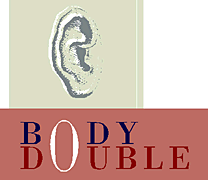
Ratner has done landmark research on the surface structure of biomaterials, demonstrating that the material surface controls the body's reaction to implants. He believes recent advances in molecular biology and materials engineering bring the quest for new "healing" biomaterials into reach. Scientists have discovered specific receptors on cell surfaces that trigger the healing process. Meanwhile, engineers have developed techniques to design materials molecule by molecule that can mimic these cell receptors.
![]()
![]() The UW, with its expertise in these areas and long tradition
of interdisciplinary research, is uniquely suited to bring about a revolution
in medical implant technology, Ratner says. UWEB brings together 26 UW faculty
members from a dozen academic and medical disciplines. More than 30 industry
partners--including health-care giants such as Johnson & Johnson, 3M and Dow Corning--also will take part in
research, teaching initiatives, licensing of technology and student
internships.
The UW, with its expertise in these areas and long tradition
of interdisciplinary research, is uniquely suited to bring about a revolution
in medical implant technology, Ratner says. UWEB brings together 26 UW faculty
members from a dozen academic and medical disciplines. More than 30 industry
partners--including health-care giants such as Johnson & Johnson, 3M and Dow Corning--also will take part in
research, teaching initiatives, licensing of technology and student
internships.
In addition to developing new medical implants, the UW will be training a new generation of engineers who know as much about biology as they do about engineering. Undergraduate and graduate students will be at the heart of the research and will become tomorrow's leaders in the $50 billion-a-year medical implant industry, Ratner says. Special efforts will be made to attract women and ethnic minorities who are under-represented in science and engineering fields.
"To have the opportunity as an undergraduate to be involved with this research program involving so many people across so many disciplines is incredible," says Joan Greve, a senior bioengineering student from Huntington Beach, Calif. "I've talked with undergraduates at other universities and they're stuck doing a lot of library research. At the UW, and especially with UWEB, we're able to do hands-on work in the laboratories--work that really matters for the outcome of the research."
Turning Off the Body's Defense
One Molecule at a Time
Denice Denton: A New Kind of Dean
Send a letter to the editor at columns@u.washington.edu.